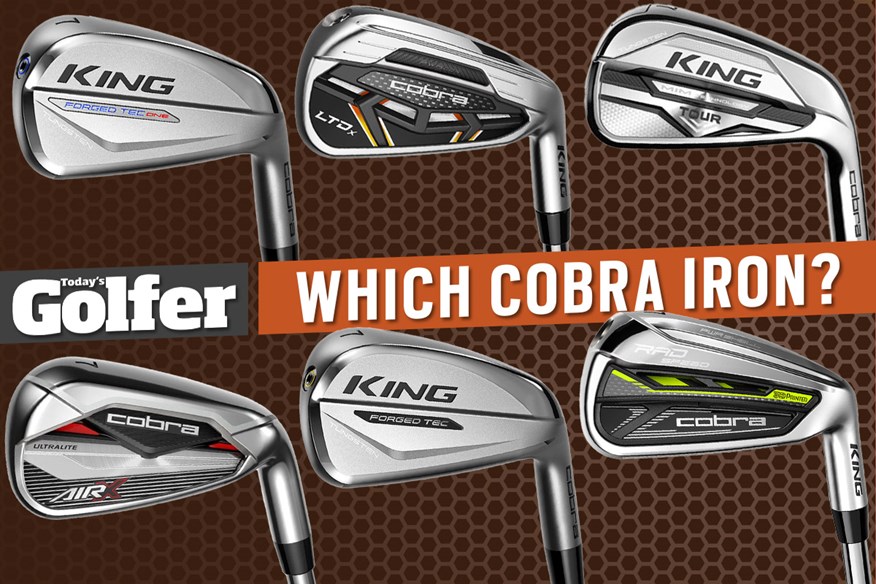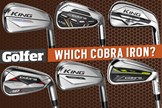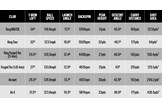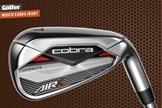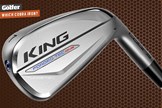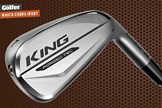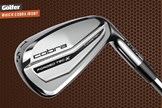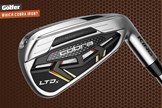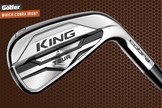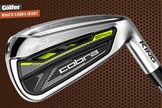Tested and reviewed by golf experts: Best Cobra Irons 2025
Last updated:
What are the best Cobra irons for your golf game? This is your guide to each iron in Cobra’s range, who they’re aimed at, and how they performed when tested by our pro.
JUMP TO: Best Cobra Irons | The data | How we test | Buying advice
Most major golf brands have five, six, or even seven sets of irons in their line-ups. They are all aimed at very specific types of golfers, but there can be some crossover depending on your handicap level, swing speed, impact characteristics and personal preferences.
Cobra have really impressed us in recent years and several of their models were highlighted in our pick of the best golf irons. We’ve tested them all in order to look at the data and help you choose the best Cobra iron for your game.
Whether you’re an elite golfer seeking control and shot-shaping or a beginner needing forgiveness and distance, Cobra irons offer options suited to various skill levels. Cobra’s game improvement irons, like the F-Max, provide a larger sweet spot and forgiving design, perfect for high handicappers or slower swing speeds.
For experienced golfers, player’s irons like the King Forged TEC offer more control and shot-shaping ability with a compact, cavity-back design. Cobra’s distance irons, such as the King RADSPEED, use advanced technology to maximize ball speed and launch, making them ideal for those focused on distance.
Cobra irons come in various models, each catering to different needs, from forgiveness to distance to shot control. The right set depends on your swing speed, skill level, and desired performance.
Best Cobra Irons
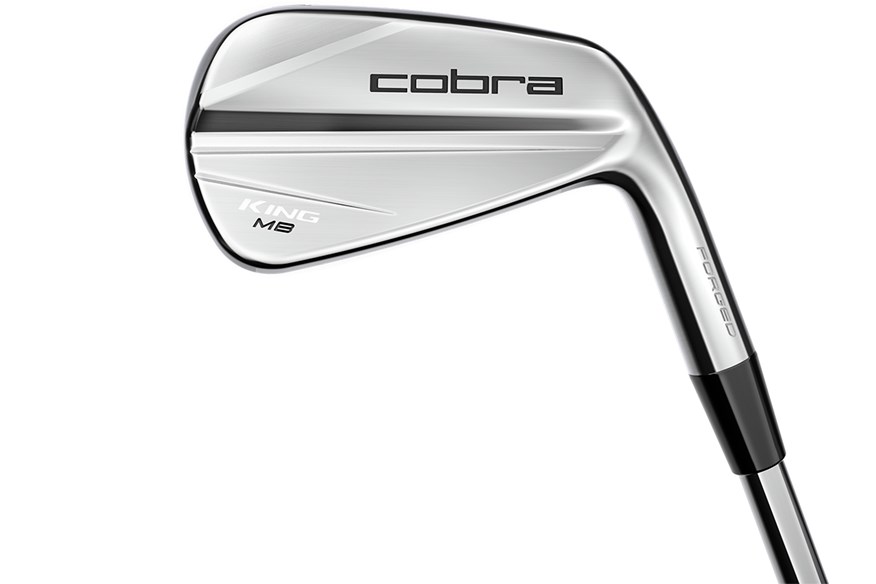

When you consider that even Rickie Fowler, a man with five PGA Tour wins and two on the DP World Tour, has moved away from the MBs in favour of the slightly more forgiving King Tour cavity back irons, it should be a clue that using these is making the game harder than it needs to be.
That said, if you do insist on using blades, the Cobra King MB are among the best blade irons you can buy.
The looks and feel are fantastic, and our test showed them to be surprisingly forgiving, with just a 6-yard drop-off on mis-hit shots, which was better than the 9.1-yard average drop-off across the blades we tested from all manufacturers.
The MBs can also be matched nicely with the slightly-more-forgiving Cobra King CBs (below) to create a combo set.
Read our full Cobra King MB iron review.
Pros
- Fantastic looks
- Unbeatable feel
- Surprisingly forgiving
- Reasonably priced
Cons
- Only for very good players
- Weak lofts will mean shorter distances
| Category: | Muscleback Blade |
| Handicap range: | Four and below |
| Construction: | One-piece 1025C forged |
| 7-Iron loft: | 34° |
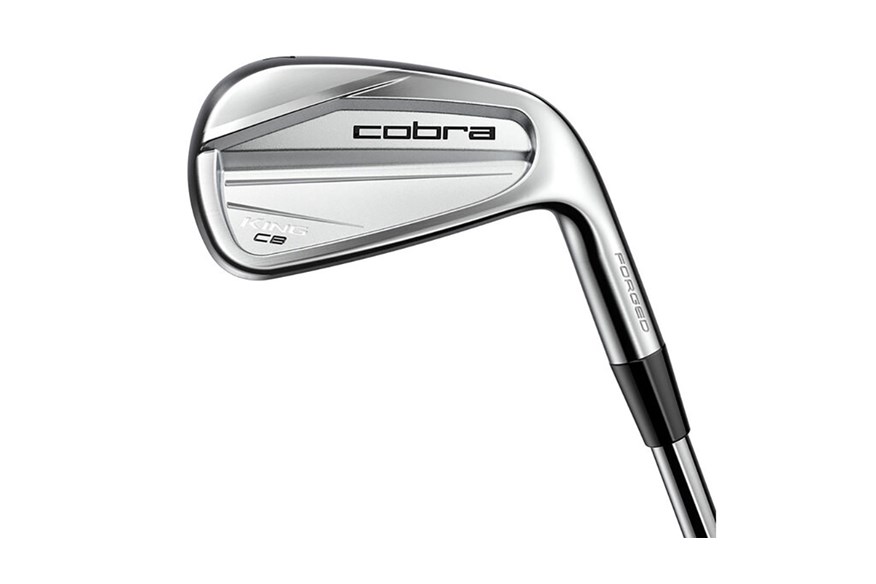

You get the same traditional lofts (34° 7-iron) so don’t expect big distances unless you’re producing a high swing speed.
Read our full Cobra King CB iron review.
Pros
- Look fantastic
- More forgiving than MBs
- Perfect for combo sets
Cons
- Weak lofts means short distances
- Need a high swing speed
| Category: | Players’ Iron |
| Handicap range: | Four and below |
| Construction: | One-piece 1025C forged |
| 7-Iron loft: | 34° |
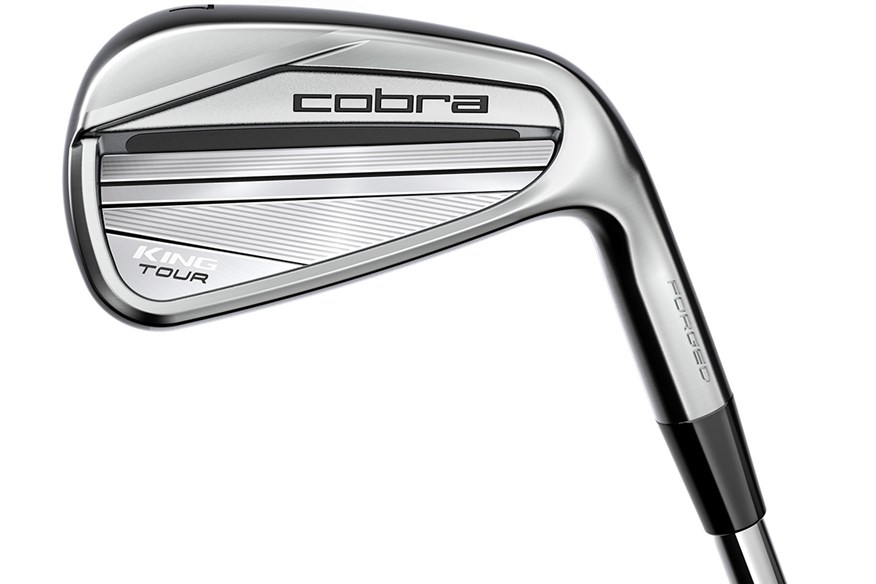

We picked the Cobra King Tour as one of the best players’ irons and think they’re a great option for single-figure golfers, particularly those who strike the ball consistently well. If you don’t always hit the middle of the face, you may find the Cobra King Forged Tec (below) more forgiving.
Read our full Cobra King Tour iron review.
Pros
- Great choice for good golfers
- Great feel
- Very controllable
Cons
- Not as forgiving as some cavity backs
| Category: | Players’ Iron |
| Handicap range: | 6 and below |
| Construction: | Forged 1025C body and face |
| 7-Iron loft: | 32° |
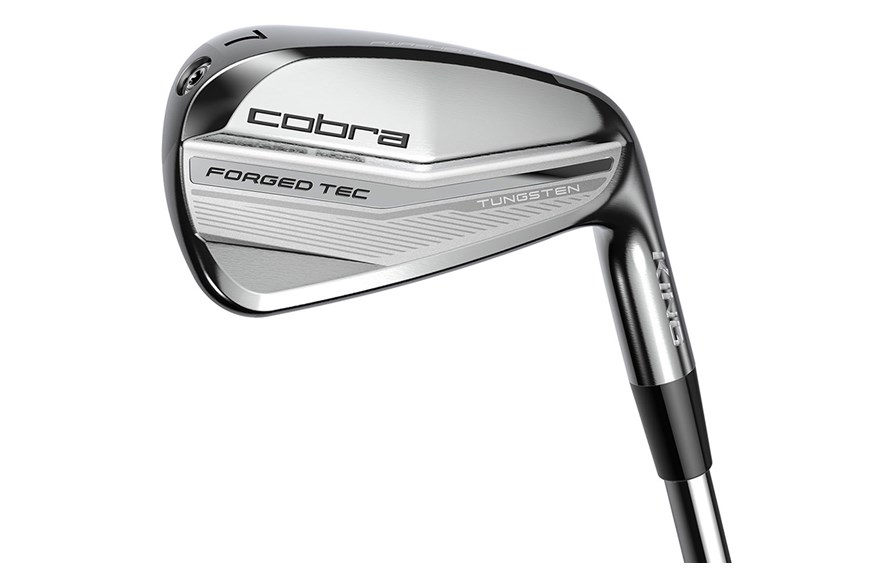

Our test pro found the Cobra King Forged Tec very accurate and consistent, producing a shot grouping half the size of the Cobra Aerojet irons.
Cobra couldn’t get us a Forged Tec 7-iron test sample, so bear that in mind when looking at its 6-iron data compared to a 7-iron in every other model.
Read our full Cobra King Forged Tec iron review.
Pros
- Decent forgiveness
- Very accurate
- Nice feel
Cons
- Don’t feel quite as good as the MBs and CBs
| Category: | Players’ Distance Iron |
| Handicap range: | 12 and below |
| Construction: | Forged hollow body and face |
| 7-Iron loft: | 29.5° |
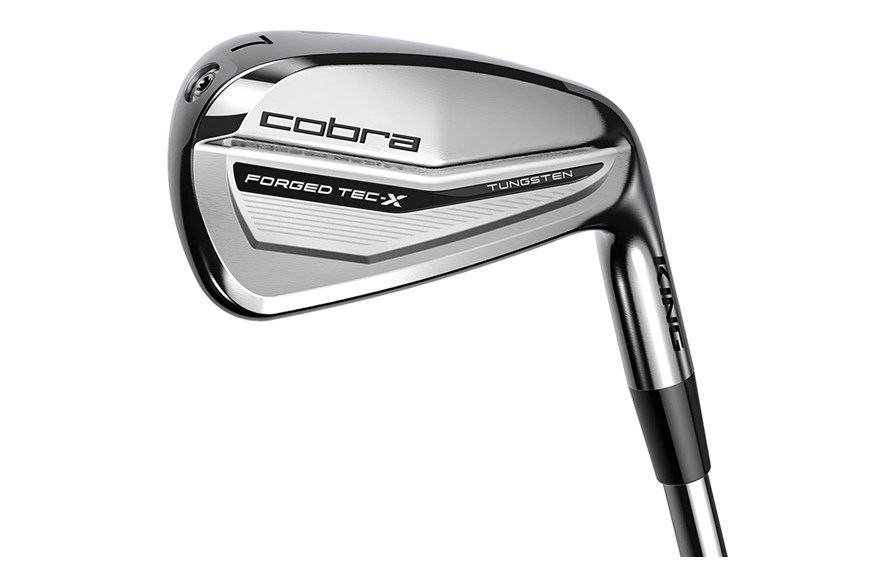

65g of tungsten weighting boosts forgiveness in this iron, which sits in the mid-handicap distance iron category alongside the likes of the Ping G430 and TaylorMade Stealth.
If you have enough speed to launch shots despite the low lofts, the Cobra King Forged Tec X are strong performers that look great in the bag and behind the ball.
Read our full Cobra King Forged Tec X iron review.
Pros
- Big distances
- Good looks
- Forgiving
Cons
- Hard to launch high at slower speeds
| Category: | Mid-Handicap Distance Iron |
| Handicap range: | 18 and below |
| Construction: | Forged hollow body and face |
| 7-Iron loft: | 27° |
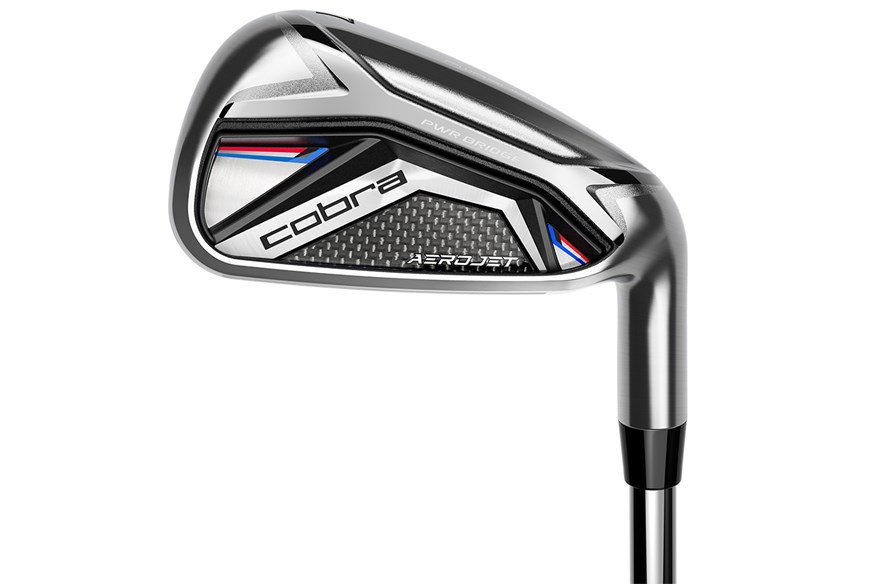

The Aerojet are a set not to bought off the rack. You really do need a launch monitor session and custom fitting to understand how the lofts work for your game, how they compare to your existing set, and to decide if you need an extra wedge to bridge the gap left between the super strong 41.5° pitching wedge and your current wedge set-up. Don’t just hit the 7-iron and get excited by how much further it goes than your current one. There’s a lot more to playing and scoring well at golf than just hitting shots faster and further.
Read our full Cobra Aerojet iron review.
Pros
- Huge distances
- Lots of forgiveness
Cons
- Distances can cause gapping problems
| Category: | Mid-Handicap Iron |
| Handicap range: | 10 and above |
| Construction: | Cast 431 body with forged 17-4 stainless steel face |
| 7-Iron loft: | 26.5° |
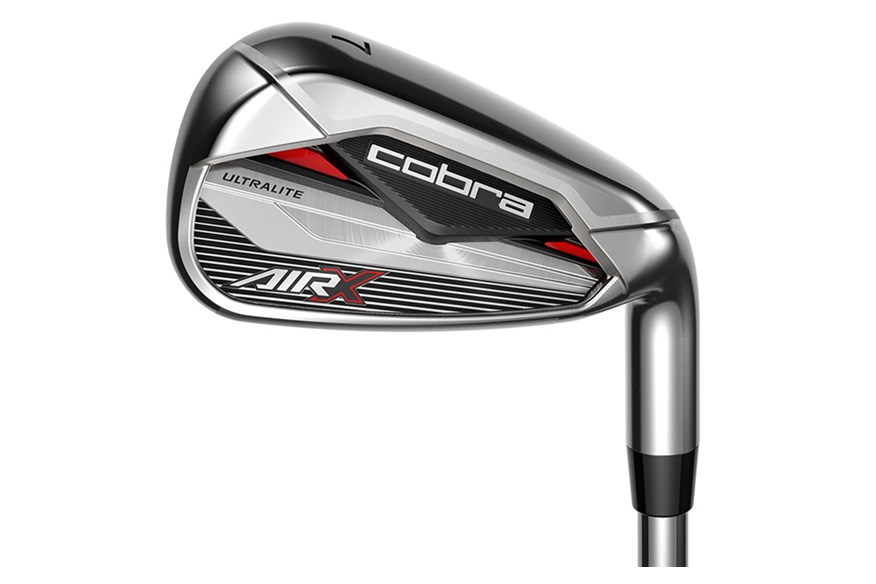

The Air-X are a brilliant fit for average-speed players. Those who are less worried about playing the very latest tech laden equipment, and are happy just to put a decent-looking and feeling iron into play that’s going to do their game no harm. Ultimately the X’s target golfer should compare the model to Cobra’s T-Rail hybrid iron, as undoubtedly there will be more forgiveness, playability and launch on offer from the wider body hybrid.
Read our full Cobra Air-X iron review.
Pros
- Very competitive price
- Easier to launch than super strong-lofted models
- Forgiving
Cons
- Less tech than some models
- Look a little dated
| Category: | Moderate Speed/High-Handicap Iron |
| Handicap range: | 28 and below |
| Construction: | Cast stainless steel cavity back |
| 7-Iron loft: | 31.5° |
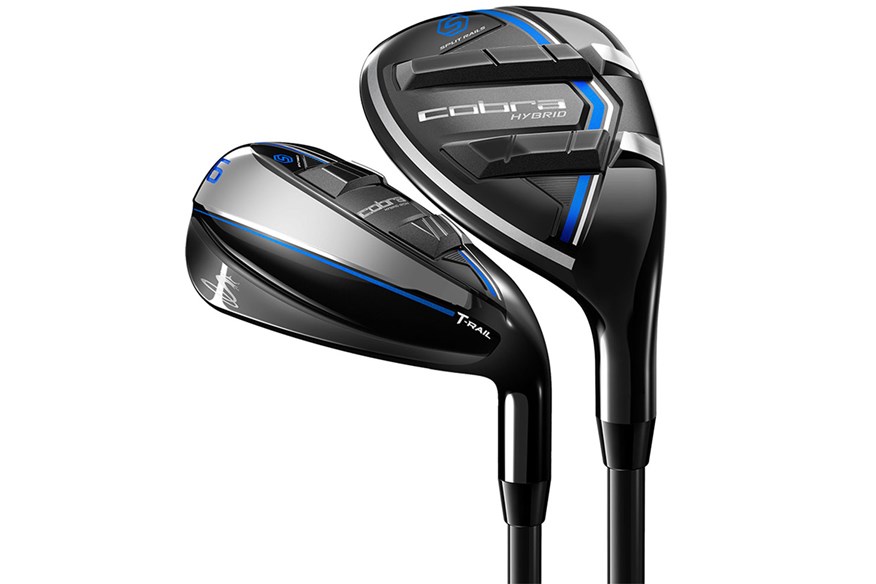

If you’re at the slower end of the swing speed spectrum, we’d seriously advise having a look at how the T-Rail perform on a launch monitor against an iron like the Cobra Air-X. Look specifically at launch angle, backspin and descent angle: if all are higher with the T-Rail it’s likely you’ll get more height and distance with them, but also shots that stop quicker on the green too.
The wider soles of hybrid irons tend to deal with lush green turf much more easily than trying to hit shots from super tight and bone-dry links land, which is well worth remembering if you plan on playing lots of golf near the seaside.
Read our full Cobra T-Rail review.
Pros
- Hugely forgiving
- Lots of height and distance
- Good for slow swings
Cons
- Not great from tight lies
- Chunky looks
| Category: | Hybrid Iron |
| Handicap range: | 28 and below |
| Construction: | Cast hollow body |
| 7-Iron loft: | 29° |
Launch monitor data: How the best Callaway irons compared
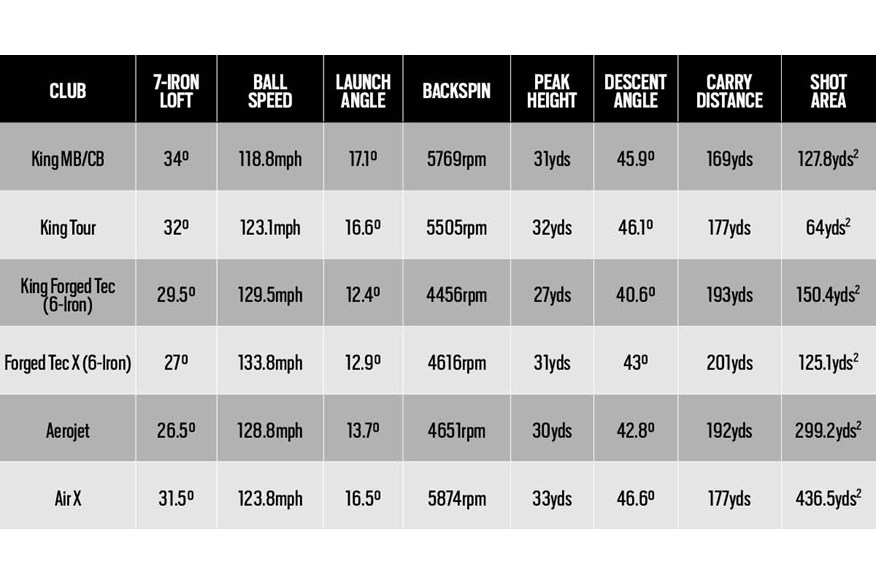
How we tested the best Cobra irons
To test golf equipment, we create a controlled indoor environment at Keele Golf Centre and use a premium tour-level golf ball (the Srixon Z-Star). We collect all the data from every shot hit, using a Foresight GC Quad launch monitor.
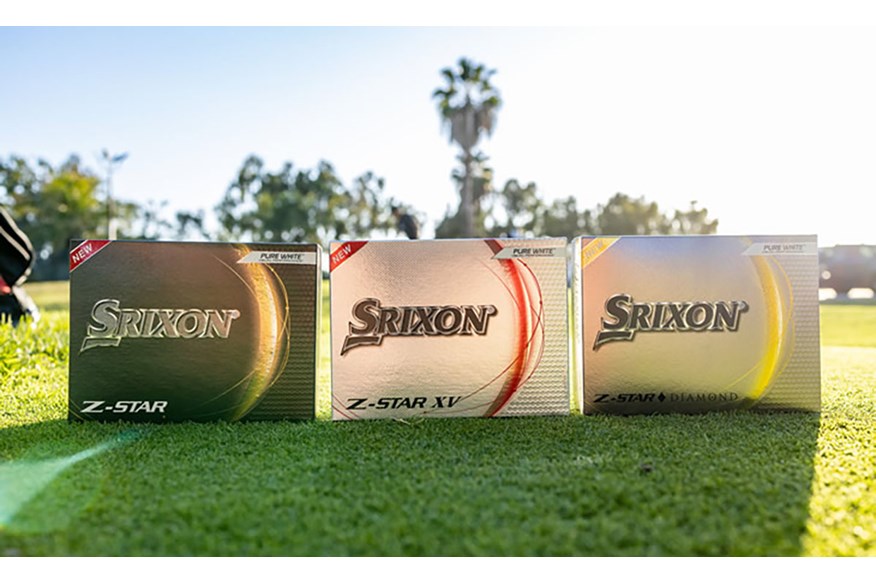
Why do we use a Srixon Z-Star golf ball?
It would be easy to use just one test golf ball brand every year, but that inevitably leads to criticism for being too closely aligned to one manufacturer, especially if that brand’s equipment performs particularly well. To ensure fairness, we like to switch manufacturers for the Top Gear test ball each year. For 2023 we’ve used the Srizon Z-Star.
The brand have just revealed their eighth-generation model, and Srixon General Manager Brian Schielke says “finding the right ball for your game is just as important as finding the right irons or driver, it’s the one piece of equipment you use on every single shot”.
Thanks to the previous Z-Star mopping up 31 wins across all tour global tours last year (that’s 15.5% of the wins available) we know the model is trusted by the world’s very best.
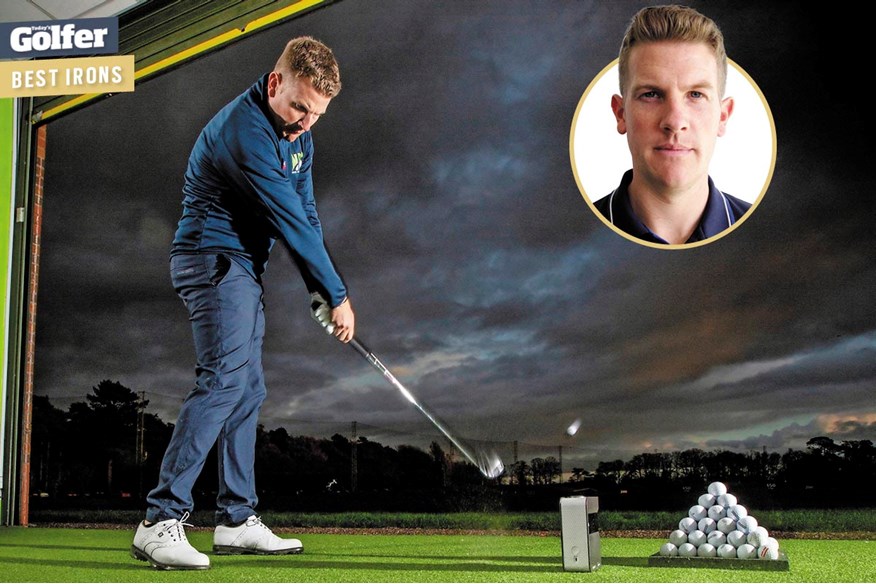
Why do we use a pro tester?
Speak to any golf club engineer about product testing, and they all talk about needing a repeatable, reliable strike to offer any sort of valuable comparison. So, whilst we accept not all of the equipment included within our tests was designed for our test pro, what our data shows is a great comparison of how clubs in each particular category differ, which is hugely valuable in helping you narrow your choice as a consumer.
We tested 83 different 7-irons, during which our test pro missed a target green at 170 to 200 yards no more than a dozen times. He got a hole-in-one, lipped out, and hit the flag several times, he also loves hitting golf balls all day long. In short, Neil Wain is the perfect club tester due to his consistency in delivering accurate and reliable comparative data.
We would, of course, always recommend attending a proper fitting session to ensure any purchase is tailored to your game.
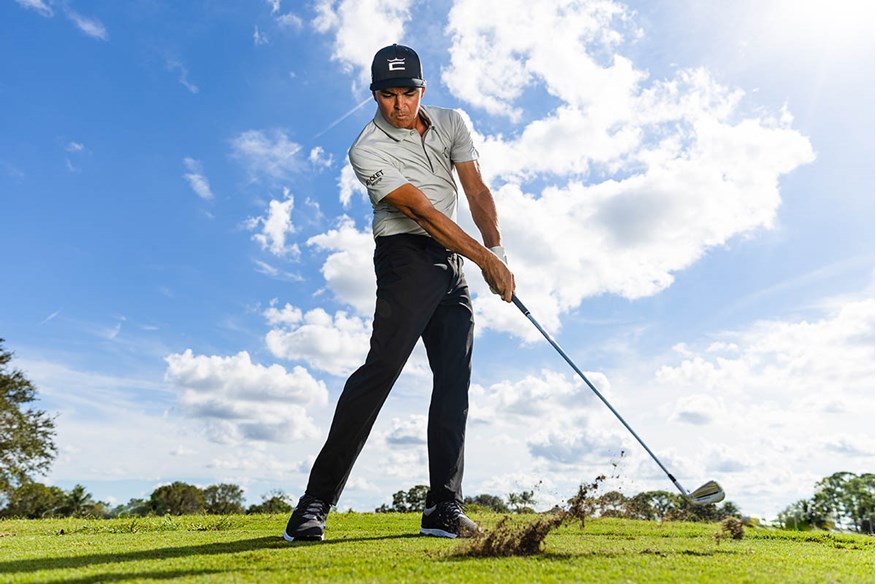
Buying advice and FAQs
Which Cobra iron is the most forgiving?
The Cobra T-Rail irons are the most forgiving in the range, although some golfers will discount them as they’re not irons in the strictest sense. In terms of pure irons, the Cobra Air-X are the most forgiving option.
What are Cobra’s best irons?
There simply isn’t one Cobra iron that will be the best for all golfers. Really good golfers will likely migrate towards the Cobra MB, CB and Tour, mid-handicappers may prefer the Forged Tec or Aerojet, and higher handicappers may want the Air-X or T-Rail.
Do any pros use Cobra irons?
Rickie Fowler is probably the most famous tour pro using Cobra equipment. He uses the Cobra King Tour irons, having moved away from pure blades in recent years.
Other top pros using Cobra include Lexi Thompson, Gary Woodland, Jason Dufner and Andrew ‘Beef’ Johnston.
BECOME A TODAY’S GOLFER MEMBER: Unlimited access to premium content and exclusive rewards!
